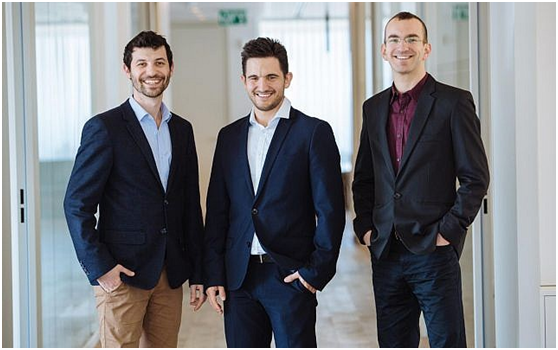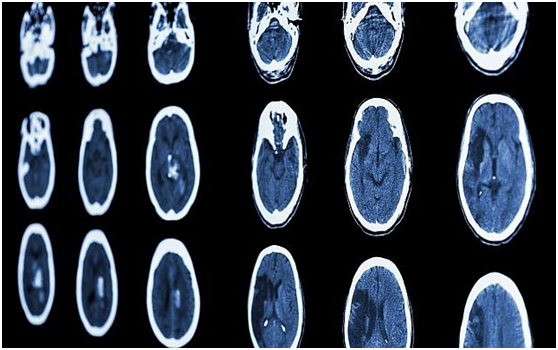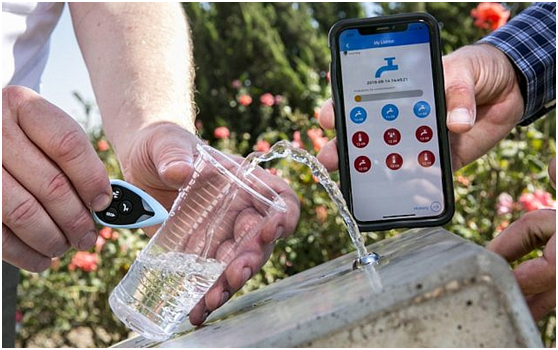Tel Aviv-based Aidoc’s technology analyzes medical images to assistradiologists with prioritization of life-threatening cases

Illustrative image of a brain scan
Israel’s Aidoc, a maker of software that helpsradiologists in their work, is on a roll: In August the company said itreceived US Food and Drug Administration approval for its first product, a deeplearning solution that assists radiologists in detecting acute brain bleeds inCT scans, and earlier this month the startup was listed by Time magazine as oneof the 50 Genius companies for 2018, along with thelikes of Apple, Airbnb and Spotify.
Aidoc’s artificial intelligence-basedsoftware analyzes medical images immediately after patients are scanned andnotifies radiologists of unusual findings, to assist with prioritization oftime-sensitive and potentially life-threatening cases.
The startup, founded in 2016 by a team of alumni of an elite technology unitin the Israeli army, where they focused on AI-based projects, has been sellingits products outside the US since December 2017. Its software has been deployedin over 50 medical centers worldwide, where they are used on a daily basisanalyzing over 1 million exams a year, the company said in a recent statement.
With over 75% of all patient careinvolving radiology, the amount of imaging required has jumped. Radiologistsare being pressured to produce quality results at a faster pace with increasingamounts of data — but with tools that are not up to the task, the company said.

Elad Walach, CEO, center, MichaelBraginsky (CTO), left, and Guy Reiner (VP R&D), the co-founders of Aidoc
By providing radiologists with a tool toanalyze medical images like CT scans at high speed, the Tel Aviv-based companyhas helped practitioners save more than 50,000 hours of human work, Time magazine said.
The brain scan product is the “world’sfirst deeplearning solution” that has been approved by the FDA to assist radiologists intheir workflow, Aidoc said in August.
The technology is already being used atSheba Medical Center in Ramat Gan, Israel, helping radiologists and patientswho otherwise would have perhaps suffered from undetected brain anomalies.
Aidoc’s products integrate seamlesslyinto the daily workflow of radiologists, said CEO and co-founder Elad Walach ina phone interview, and also are able to provides solutions for readings acrossthe body, he said.
“Radiology is one of the most data-heavyfields in medicine,” Walach said, and “it’s impossible to glean the full valueof this data without the assistance of AI.” So, he said, “we wanted to providea tool that worked in the background — that was always-on, and analyzed theseamounts of data in real-time, helping steer the radiologist to urgentfindings.”
He said the founding team — includingthe co-founders Michael Braginsky (CTO) and Guy Reiner (VP R&D), had astrong belief that healthcare is the sector where the AI expertise they gleanedin the army could have the biggest impact.
The healthcare field is a “blue ocean”of opportunities for artificial intelligence technologies, Walach said.
Aidoc is in the process of getting FDAclearance for its other products as well, which help in the detection of a wideset of acute pathologies in the body, the company said in a statement.

An illustrative CT scan of a brain showsischemic stroke and hemorrhagic stroke (stockdevil; iStock by Getty Images)
“Aidoc is providing radiologists withthe most advanced solutions to increase efficiency and expedite patient carewithin their existing work environment,” Dr. Chen Hoffmann, the head of ShebaMedical Center’s Neuroradiology department, said in a statement. “As the headof Neuroradiology, I feel confident that the Aidoc solution has my back. I knowthat as I’m working, the AI solution running in the background will let me knowwhen there’s an urgent case that needs my attention.”
Aidoc is not the only Israeli companyusing AI to help radiologists better read scans. MedyMatch Technology Ltd. alsouses algorithms to pinpoint intracranial hemorrhages in scans, for example.Earlier this year, MedyMatch was granted Expedited Access Pathwayand BreakthroughDevice designation by the FDA for intracranial hemorrhage detection.
“With the evidence I’ve seen, in the notso distant future, it will almost be unthinkable to practice radiology withoutthe assistance of solutions like Aidoc,” Dr. Barry D. Pressman, chairman ofImaging at Cedars-Sinai Medical Center in Los Angeles, California, said in thestatement.
Aidoc investors include funds TLVPartners, Magma Venture Partners and Emerge. The company has raised $13 millionin two investment rounds, Wallach said.
Other ‘Genius’ companies
Lishtot, a Jerusalem-based startup that hasdeveloped a $50 key chain-like device that can detect contaminants in watersuch as E. coli, lead, arsenic, mercury, copper and chlorine in just twoseconds, was the second Israeli company listed in the Time ranking.

Lishtot Detection Ltd.has developed itsTestDrop, a key chain-like device and app that detects contaminants in water.
WeWork, the US office-sharing firmfounded by Israeli Adam Neumann, was also named as one of the 50 Geniuscompanies by Time.
By Federico Maccioni from The Times of Israel

